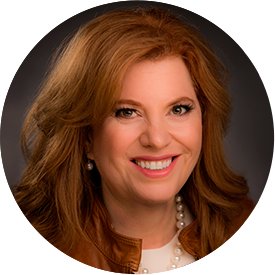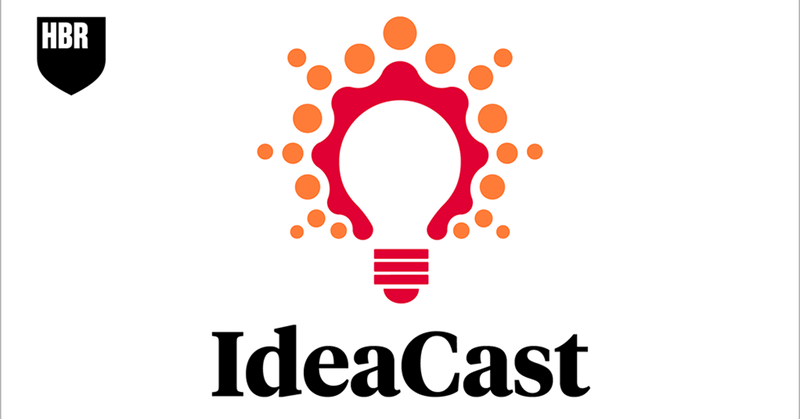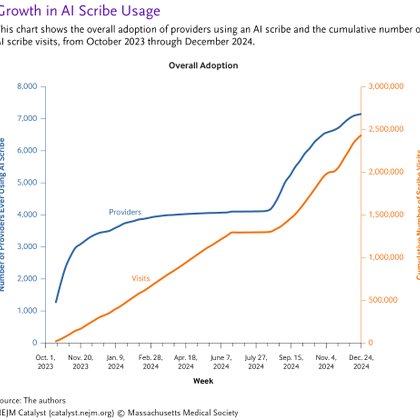
Halee Fischer-Wright
@DrHalee
Followers
1K
Following
1K
Media
335
Statuses
3K
President & CEO of @MGMA, bestselling author of books on health care and culture
Denver, CO
Joined August 2009
In healthcare, we’re facing even more uncertainty about the future, and that’s saying something. I found this IdeaCast interview from @HarvardBiz with @LHSummers insightful. He shares his expertise on planning, economic shifts worth our attention, and more.
hbr.org
A conversation with the former U.S. Treasury Secretary on leading businesses in 2025.
0
0
1
The title of this article from @MedEconomics buries the lead. AI/LLM models consistently recommended less medical care based on messages written as if they came from women. AI is learning bias from what it’s fed, showing the real-world effects.
medicaleconomics.com
MIT researchers find that large language models may shortchange women and vulnerable patients based on how clinical inquiries are typed.
0
0
1
Marie Brown, @KHopkins_MD, @Michael_A_Tutty, and @aleksayers of the AMA will be delivering a valuable, practical workshop at our 2025 Leaders Conference. Register to learn best practices for implementing change that can help any practice run better.
0
1
1
Data on med students who pursue dual degrees can help us keep our eye on future physician trends. Are dual degrees an indicator of MDs who choose not to practice medicine? Thanks to @AAMCtoday for sharing, I’m interested to see what the data reveals next.
aamc.org
As student interest in dual advanced degrees grows, medical schools are adding opportunities. Benefits include specific career paths and leadership development.
0
0
3
In healthcare, data and research are important. Equally important is how we interpret the data. Amy Finkelstein explains the “difference between no evidence of impact and evidence of no impact” and corrects misunderstandings about her research in @STATnews.
statnews.com
Defenders of Medicaid cuts point to the Oregon Health Insurance Experiment to argue that the cuts won’t harm people’s health. But they misunderstand the results, writes one of the study’s authors.
0
0
0
Healthcare as an industry is already data security conscious, but with the increase in more sophisticated cyberattacks, we can always do more. F. Muhly, J. Jordan, @RobertCialdini, and G. Neidert explain how to weave it into your culture. Via @harvardbiz
hbr.org
With the damages from cybercrime growing ($16 billion in U.S. damages in 2024 alone), human error remains the leading cause of breaches—but also the greatest opportunity for improvement. Companies...
0
0
1
Protecting healthcare practices against cybercriminals is becoming urgent. The DOJ halted billions of dollars of Medicare payments to overseas bad actors using AI-driven analytics. It could offer lessons for even smaller practices. Via @healthcaredive
healthcaredive.com
Matthew Galeotti, head of the Justice Department’s criminal division, called the operation “the beginning of a new era of aggressive prosecution and data-driven prevention” of healthcare fraud.
0
1
1
Leaders spend a lot of time negotiating—with vendors, colleagues, our own teams—even if we aren’t conscious of it. In this episode of the @HiddenBrain, @BazermanMax helps us understand how our biases and blind spots could be keeping us from success.
podcasts.apple.com
Podcast Episode · Hidden Brain · 04/07/2025 · 53m
0
0
0
On a day designed to honor the people who have sacrificed so much for us all, I’d like to shine a light on the important work of the Wounded Warrior Project. #MemorialDay
woundedwarriorproject.org
Wounded Warrior Project is a nonprofit charity organization for veterans and active duty service members. Learn about our programs and supporting wounded warriors.
0
0
0
You can also read the full data analysis from @PermanenteDocs in @NEJMCatalyst here:.
catalyst.nejm.org
One year after the deployment of ambient artificial intelligence scribes, The Permanente Medical Group in northern California reports rapid growth in physician usage, highly positive experiences am...
0
0
0
“Care teams using predictive technology reduced … hospitalizations by 48%.” Sanjay Basu lays out compelling options for reducing Medicaid costs while improving outcomes. Less bureaucracy, better tech, and smart community health initiatives. Via @STATNews
statnews.com
As Congress considers Medicaid cuts to control federal spending, it should focus on eliminating bureaucratic barriers that paradoxically increase costs.
0
0
0
“What if this isn’t the storm—what if it’s the climate?” A powerful question for leaders in #healthcare. How can we distinguish whether one new disruption is just a sign of the times or an anomaly? @CherylEinhorn gives us some guidance. Via @HarvardBiz
hbr.org
In today’s perma-crisis world, waiting for stability is like waiting for a train that’s never coming. When everything around you feels unsteady, four questions can serve as strategic tools to help...
0
0
0










